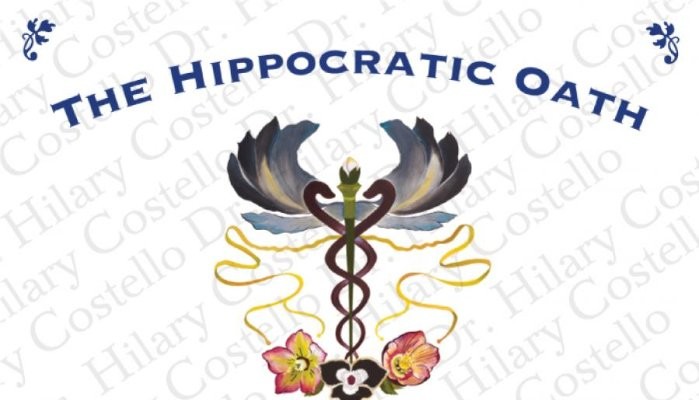
The Hippocratic Oath - How Well Do We Know It?
To lead anyone, you have to know about them, their beliefs, their values. For doctors, a lot of it is traditionally based on the Hippocratic Oath. Let's look at that.
It is believed that Hippocrates, the so-called Father of Medicine in Western Culture,
or one of his students, wrote this oath between 330 and 430 BC. (Typical of a teacher - let his student do the work, then take the credit for it). This oath was used to prove loyalty for those men who chose the profession without having a father who was a physician (the usual way of getting into medicine at that time). It essentially solemnized loyalty.
The popularity of the oath dwindled in the 1800's but became revived in the 1920's. The modern version of the oath is what is used in medical school graduations, as well as what is popularly referred to in the lay and medical press. The "modern" version first appeared in 1948, but other revisions are used today.
What Does The Original Oath Say?
- First, these folks were swearing to many gods ("Apollo the Physician and by Asclepius and by Health and Panacea and by all the gods as well as goddesses"). This seems very post-modern, but I find it a bit disturbing, actually.
- The doctor is to regard his teacher "as equal to my parents, and . . to share, in partnership, my livelihood with him and to give him a share when he is in need of necessities." Wait, what?! THAT doesn't happen, does it?
- Doctors are sworn to teach their skills to others - a concept that is still held strongly in the medical community.
- "And I will not give a drug that is deadly to anyone if asked [for it], ii. nor will I suggest the way to such a counsel". Thus springs one branch of the ethical argument on euthanasia.
- And as a surgeon, one of the most interesting parts: "I will not cut, and certainly not to those suffering from the stone [kidney stones], but I will cede [this] to men [who are] practitioners of this activity." Ignore the misogyny, but note the distinction between physicians and people who cut. No wonder we surgeons are always considered second class compared to the "oh so smart" academicians in internal medicine. [Sarcasm intended, but only for those who are internists and don't get the joke].
- Current laws on patient confidentiality are even addressed: "And about whatever I may see or hear in treatment, or even without treatment, in the life of human beings -- things that should not ever be blurted out outside -- I will remain silent, holding such things to be unutterable." HIPAA is not new, my friends.
What It Doesn't Say
There is nothing in the original or modern Hippocratic oath about "First, Do No Harm". That phrase is actually thought to have originated with a surgeon from Liverpool named Thomas Inman.
We should know exactly what we are pledging to, I guess. And it is always interesting to me how tradition in many things hasn't really changed for a long time.


Law Firms, SMBs, Corporations: Stop meeting 'MAYBE' - Only meet 100% Ready-to-Hire Legal Talent | In-house Counsel, Associate Attorneys, Paralegals or Staff | Contact me: michael@missionrecruiting.com | (949) 396-2515
8yGreat Article Kurt....pity there's malpractice infrastructure for Hairdressers and Barbers - seeing as they both sprang from the same practice...."Above all do no harm" is rarely exercised by my Barber...